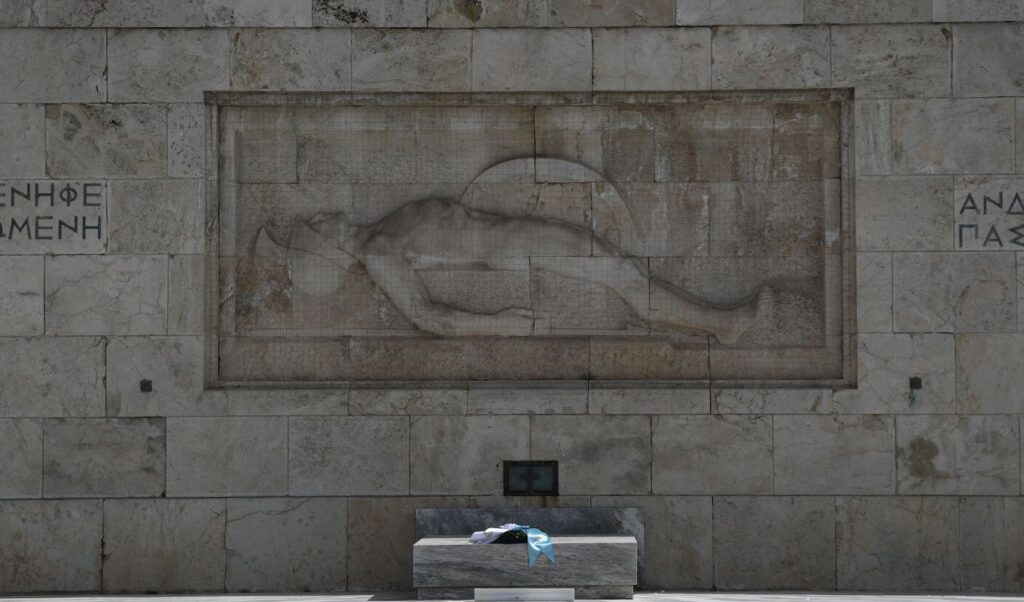The government has introduced an amendment for voting in Parliament that aims to create a protective shield around the Tomb of the Unknown Soldier. The amendment, set to be voted on late Tuesday evening, emphasizes that the Tomb of the Unknown Soldier is a monument of special historical and national significance. Therefore, responsibility for protecting the Monument remains with the Ministry of Citizen Protection, while maintenance, care, and enhancement will be undertaken by the Ministry of National Defense.
“The Ministry of National Defense undertakes the maintenance, care, and enhancement of the Monument and the area, either through its own means or through the assignment of relevant contracts,” the amendment characteristically states. It’s worth noting that the regulation introduces prohibitions regarding the use of the space in front of the Monument, including the area where the names of the 57 victims of the Tempi tragedy are written in red paint.
Amendment for Unknown Soldier Monument: parliamentary confrontation intensifies
At the same time, tensions are expected to rise between government and opposition, as both Prime Minister Kyriakos Mitsotakis and opposition leaders are expected to speak during the parliamentary debate. According to the regulation’s content, the space in front of the monument, on Queen Amalia Avenue opposite Syntagma Square, prohibits: “the use or occupation of the area’s surface for any purpose beyond visiting the monument and highlighting its significance,” as well as “any alteration of the space, the holding of any public outdoor assembly, including spontaneous and emergency outdoor public assemblies.”
As noted in the provision, those who violate the above are punished with imprisonment of one year or a monetary fine, unless they are punished more severely by another provision. At the same time, the Ministry of National Defense takes all necessary measures for the maintenance, care, and enhancement of the Monument and the area, either through its own means or through the assignment of relevant contracts. It is also noted that the Hellenic Police is responsible for maintaining public order according to existing provisions.
The amendment is signed by Kyriakos Pierrakakis (Minister of National Economy and Finance), Nikos Dendias (Minister of National Defense), Theodoros Livanios (Minister of Interior), Michalis Chrysochoidis (Minister of Citizen Protection), Stavros Papastavrou (Minister of Environment and Energy), Giorgos Floridis (Minister of Justice), and Lina Mendoni (Minister of Culture).
Simultaneously, the explanatory report emphasizes that the regulation was deemed necessary since there was no previous legislative provision for protecting this specific area. The text invokes the Constitution, explaining that freedom of assembly (Article 11) is not unlimited but is bounded by other superior constitutional provisions. Among these are the purpose of preserving the continuity of the Greek nation, defense of the homeland (Article 4), and protection of the cultural environment and monuments (Article 24).
Additionally, the regulation clarifies that the restriction concerns a very small area, “less than one-fifth of the total surface of Syntagma Square,” where the right of assembly can be exercised normally. Furthermore, the regulation is characterized as a “conceptual determination” of the meaning of assembly in this particular place, rather than a disproportionate restriction of the right. Regarding those who violate the new prohibitions, they will be punished with imprisonment of up to one (1) year or a monetary fine. Moreover, in cases of offense against places of special national significance, the penalty may be more severe under the Penal Code.




